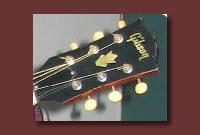You Say “Peach,” and I Say “Peaches.”
 We have a couple Asian-owned produce stores in town. The stores are noteworthy for their cleanliness and their absolutely beautiful and tasty fruits and vegetables. However, I noticed that the owners of the stores make the same kind of mistakes.
We have a couple Asian-owned produce stores in town. The stores are noteworthy for their cleanliness and their absolutely beautiful and tasty fruits and vegetables. However, I noticed that the owners of the stores make the same kind of mistakes.
The fruits and veggies are displayed, much as one would see them in a supermarket. However, in each grouping of fruits or vegetables is a handwritten sign, which identifies the fruit or vegetable and specifies the price. Here’s the mistake. The signs invariably say:
“apple,†instead of “applesâ€
“pear,†instead of “pearsâ€
“peach,†instead of “peachesâ€
“orange,†instead of “orangesâ€
“carrot,†instead of “carrotsâ€
“pepper,” instead of “peppers”
You get the picture. For the life of me, I could not understand why they don’t use plurals? I thought, “Why don’t they just learn the rule? It’s easy. Hell, maybe I should offer to teach them the rule?”
But then, I got to thinking a little more about it, which caused me to realize that, if I owned a produce store, my signs would say:
“corn,†instead of “cornsâ€
“lettuce,†instead of “lettucesâ€
“celery,†instead of “celeriesâ€
“kale,†instead of “kalesâ€
“rhubarb,†instead of “rhubarbsâ€
“cauliflower,†instead of “cauliflowersâ€
Oy! No wonder they don’t learn the rule. Apparently, there is no rule.
No, wait. Maybe the rule is that fruits are always plural, but vegetables are sometimes singular but sometimes plural. OK, so what is the vegetable rule?
Hair hurting alert!!!!!
English is a bitch. Maybe that’s the rule.





The Monkey in The Monkey Cage has a surefire way of telling if a Chinese buffet is authentic or not:
The way to tell a TRUE Chinese buffet is by the signs over the food. If there are no plural words -you’re in good shape. Over the spoons and forks the signs must say “Spoon and Fork” – over the String Beans – it should read “String Bean”. Also the little tags should NEVER say “Fried Rice” – instead it should be called “Fry Rice”. If you see anything plural – leave – it’s not authentic.
Comment by Randy — May 19, 2004 @ 10:17 am
Maybe there ARE no rules?
Language by consensus? 😉
Comment by Dan Kauffman — May 22, 2004 @ 8:45 pm
Maybe there ARE no rules?
Language by consensus? 😉
Comment by Dan Kauffman — May 22, 2004 @ 8:46 pm
In Chinese, the word doesn’t change to become plural. Just like corn, sheep, etc. They also don’t conjugate verbs. I go today, I go tomorrow, I go yesterday. Like that. So they translate a bit and we’re lucky it’s recognizable at all as English.
Comment by IB Bill — May 25, 2004 @ 5:27 pm
🙂
Glad you liked that Jim!
Comment by Monkey — May 12, 2005 @ 9:57 pm